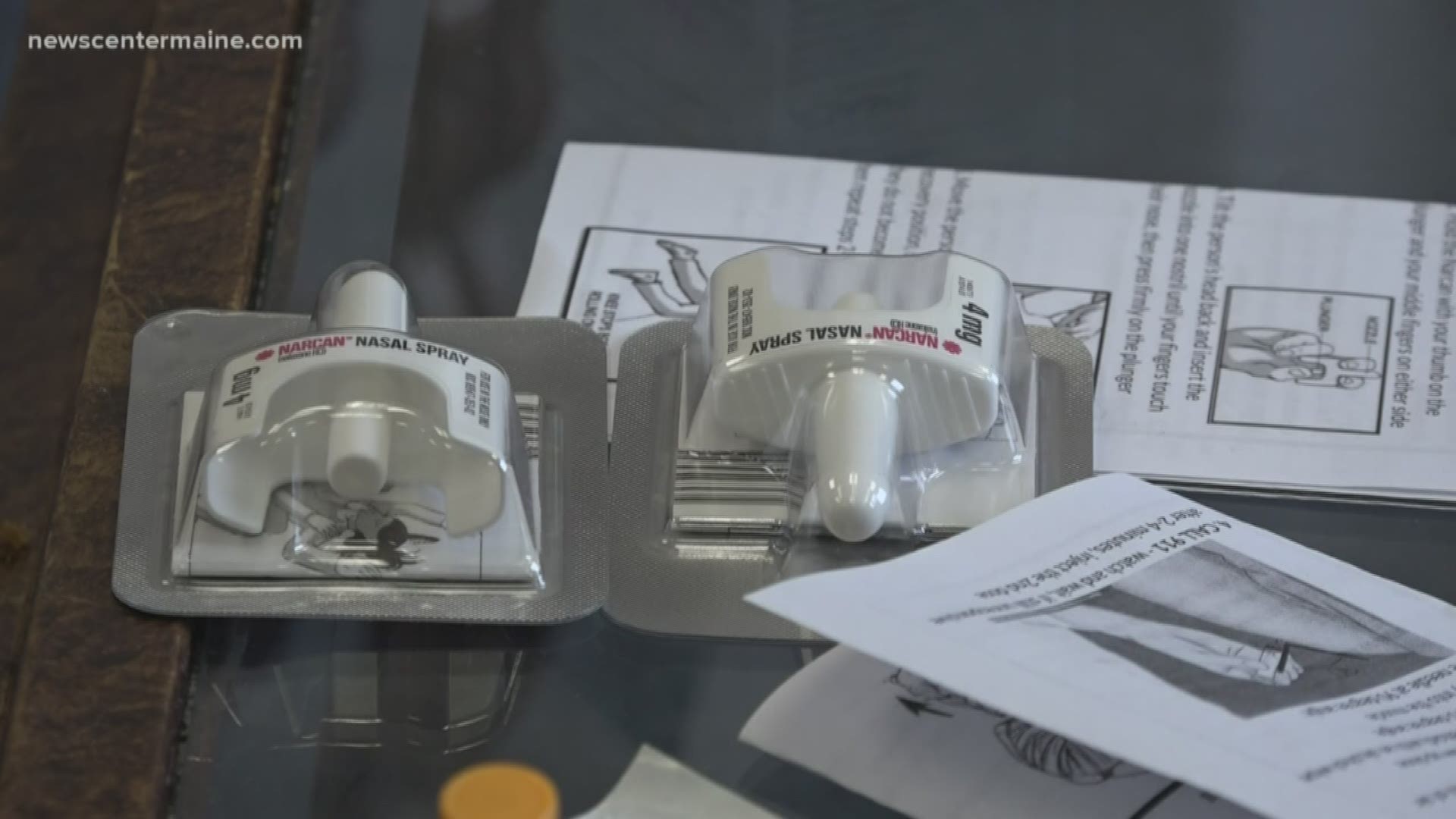BANGOR, Maine — Ads for Narcan or Nalaxone are showing up on our televisions, Facebook feeds, and even on city buses.
"It's part of a statewide initiative to educate the community about Nalaxone and it's availability for people to acquire," Joeseph Locke from Bangor Public Health said.
The overdose-reversing drug is available to any Mainer.
You can get it from a community distributor, like Bangor Public Health or the Health Equity Alliance, or from your health care provider.
According to haveitonhand.com, you can also get it at a Maine pharmacy—you can look for the “Naloxone Available Here” sign. If you don’t see the sign, simply ask the pharmacist, the website said.
June Evergreen has been sober for about three years. Now, she works at the Health Equity Alliance in Bangor and helps others learn how to use Narcan.
"Makes it more relatable," she said. "They really do trust that I care because of the fact that I've walked the line before."
Every person who receives Narcan is trained on how to use it.
There are two types of Narcan: the nasal spray and the intermuscular option.
The nasal spray is exactly how it sounds and is inserted into the nostril like allergy medicine.
The intermuscular option is where the person administering the drug puts the medication in a needle then puts the needle in the upper part of the person's shoulder who is overdosing.
Experts say using Narcan can't hurt the person overdosing, it only reverses the overdose.
"So there's no risk of responding if that's what you think is going on," Dana Carver-Bialer from Health Equity Alliance said.
Carver-Bialer said anyone can be trained to administer Narcan, "that's the first line of defense then the second thing you do is you call 911 and let medical professionals step in."
When people are being trained to administer Narcan, they're also taught not to overwhelm the person coming out of the overdose, suggesting only one person cares for that individual at once.
And according to the state's initiative, every Mainer has a role to play in the opioid epidemic.
"Each one of us has a role to play in preventing and reducing opioid addiction. No matter who you are and whether or not you take opioids, there are steps you can take to help impact the crisis—from returning unused prescription drugs to asking your doctor about alternative treatments to keeping Naloxone nasal spray in your home or business," the Have It On Hand website said.
If you come across someone that appears to be overdosing, experts say it may be hard to tell if it's an overdose or another medical emergency.
A person is likely overdosing if their fingertips and lips are blue or purple, they are unresponsive to voice or touch, their pupils are pin-point size, they have a slow or irregular heartbeat or breathing or their skin is pale or clammy.
The Maine Department of Health and Human Services has hotlines and crisis numbers available; if you or someone you know is in immediate danger please dial 911.
- Maine Statewide crisis hotline: 1-888-568-1112
- Substance Use Disorders and Tobacco Use: 211
- Alcoholics Anonymous: 1-800-737-6237
- Narcotics Anonymous: 1-800-974-0062
- Substance Abuse Disorder Treatment locator: http://www.findtreatment.samhsa.gov/locator
- Eyes Open for ME: 1-800-974-0062

